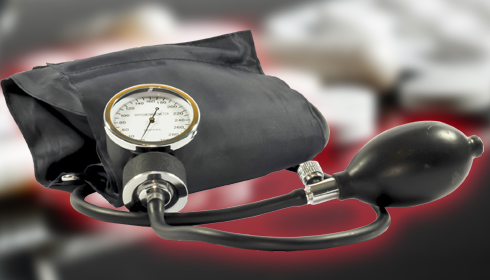
Compliance, Not Timing Important in Efficient Blood Pressure Medication Management: Study
The timing of blood pressure (BP)--lowering drug administration, whether in the evening or the morning, does not affect the risk of cardiovascular events or death, researchers of a recent study presented at the ESC Congress 2024 claimed. This discovery calls into question earlier beliefs about the benefits of evening dosage and shows that patients can take their prescriptions whenever it is most convenient for them without affecting their health outcomes.
Professor Ricky Turgeon of the University of British Columbia led the study, a systematic review and meta-analysis, which aimed to clarify contradictory findings from previous trials on the optimal time to take BP-lowering drugs. "Evidence shows that having higher-than-normal blood pressure at night increases the risk of cardiovascular events. However, investigations examining the impact of providing blood pressure-lowering drugs at night have had conflicting findings," Professor Turgeon remarked during his presentation.
The meta-analysis included data from all parallel-group randomised controlled trials (RCTs) that compared nighttime versus morning delivery of blood pressure-lowering medicines. To be considered for the analysis, studies had to have at least one cardiovascular outcome of interest, a minimum follow-up of 500 patient years per group, and a median follow-up of 12 months or longer.
The meta-analysis includes five randomised controlled trials: BedMed, BedMed-Frail, TIME, Hygia, and MAPEC. These studies included a total of 46,606 people. We found a minimal risk of bias in the BedMed, BedMed-Frail, and TIME trials; however, the Hygia and MAPEC trials raised concerns about the randomisation technique, potentially presenting bias problems.
The meta-analysis's primary outcome was major adverse cardiovascular events (MACE), a composite measure that encompasses all-cause mortality, non-fatal myocardial infarction, non-fatal stroke, and heart failure aggravation. Secondary outcomes included each component of MACE, all-cause hospitalisation, and specific safety events such as fractures, glaucoma-related occurrences, and deteriorating cognition.
The results revealed that the incidence of MACE did not change substantially between evening and morning dosages (hazard ratio [HR] 0.71; 95% confidence interval [CI] 0.43-1.16). A sensitivity analysis that took bias into account found an HR of 0.94 (95% CI 0.86-1.03) for MACE with evening versus morning dose in the three low-bias studies. In comparison, the HR was 0.43 (95% CI 0.26-0.72) in the two studies with greater bias issues.
The study also revealed no significant difference in all-cause mortality between evening and morning doses (HR 0.77; 95% CI 0.51-1.16). Furthermore, the timing of medicine delivery did not affect any other secondary outcomes, such as fractures, glaucoma events, or cognitive events.
The results of this meta-analysis provide compelling evidence that the timing of blood pressure-lowering drug delivery did not affect cardiovascular outcomes. "Patients should take their once-daily BP-lowering medications at whatever time best suits their preferences and circumstances," according to Professor Turgeon.
This result is critical because it allows patients more freedom in regulating their prescription regimens, thereby boosting adherence and quality of life. It also simplifies recommendations for healthcare practitioners, who can now focus on ensuring patients take their drugs consistently rather than worrying about dose time.
This study emphasises the necessity of prioritising medication adherence above dosage scheduling and managing blood pressure efficiently. It also emphasises the need for further investigation into additional variables that may impact cardiovascular health outcomes in hypertensive individuals.
Regardless of the timing of drug administration, the primary focus remains on maintaining good blood pressure management to lower the risk of cardiovascular events as healthcare providers and patients adjust to these discoveries.